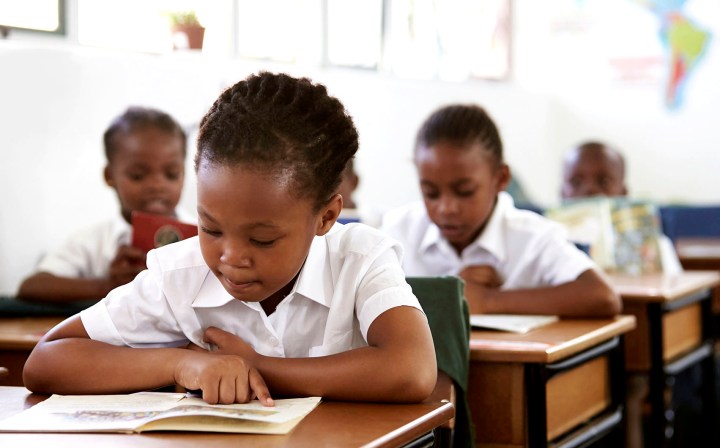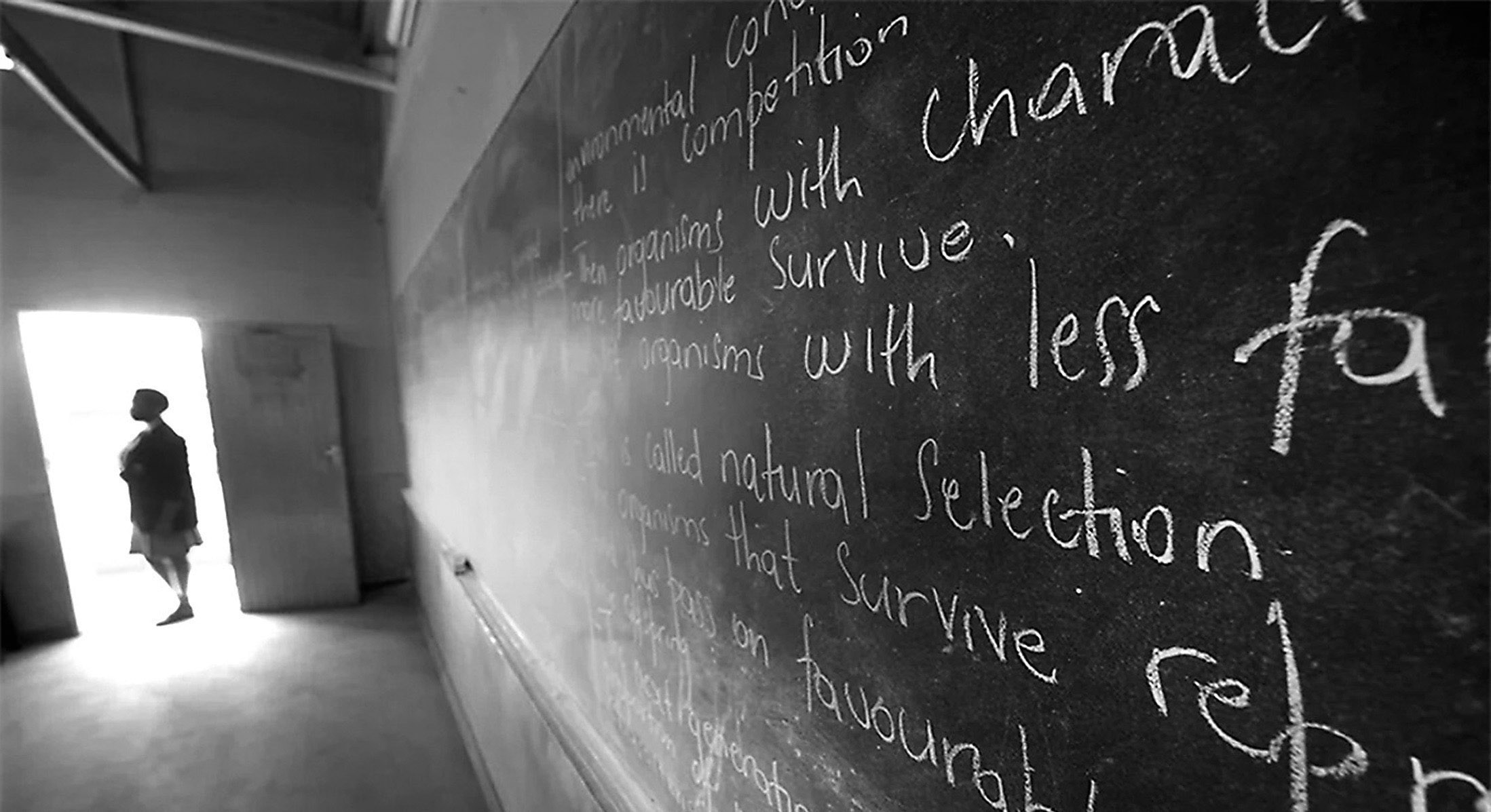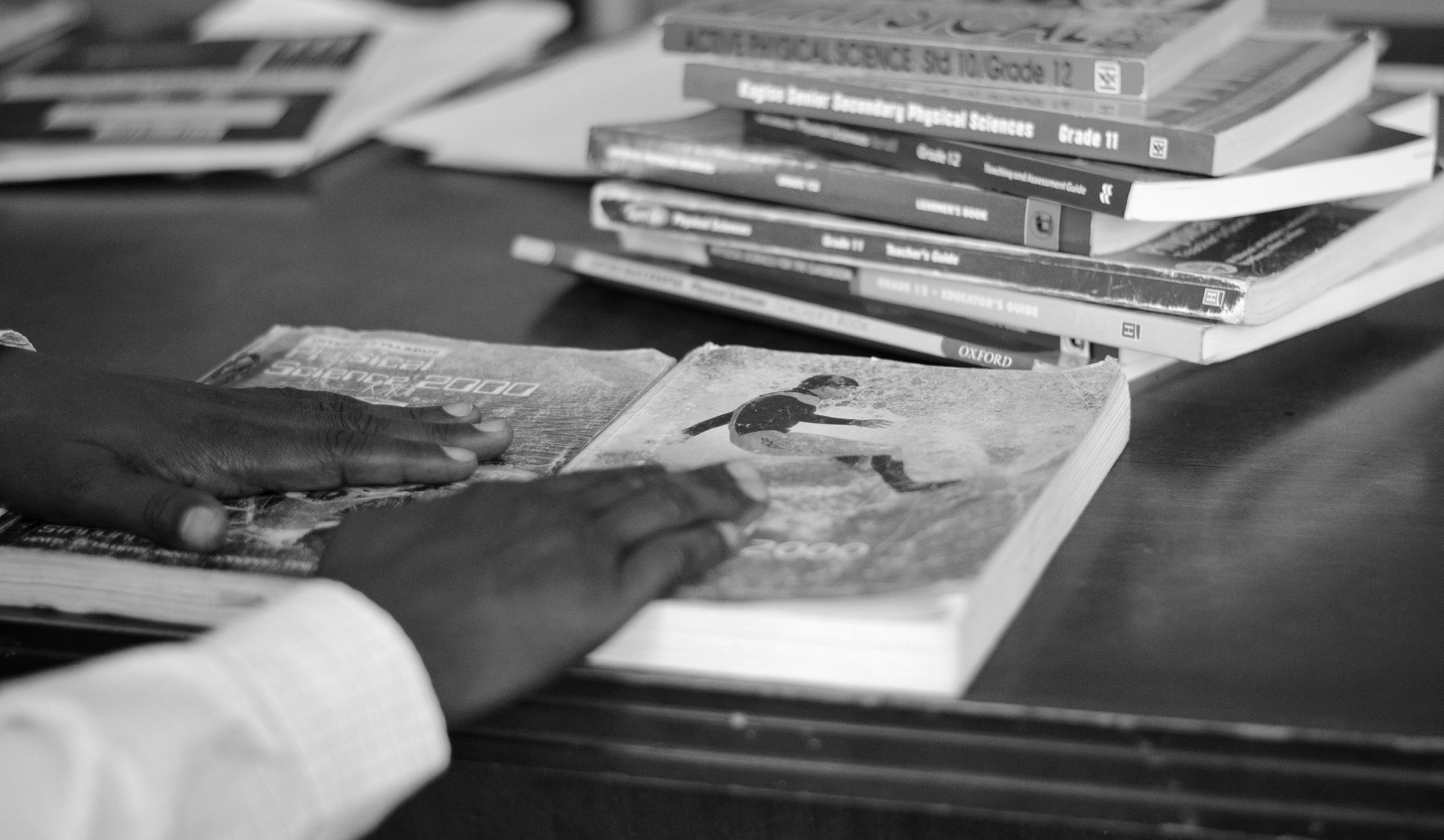TEXTBOOK EXAMPLE OP-ED
Business leaders join principals in plan to transform South Africa’s ailing education system

The Execs Back to School programme goes beyond physical improvements and providing resources to schools, it seeks to instil a mindset of continuous improvement and growth within the education system.
Education stands as a fundamental pillar for progress and prosperity in South Africa, a nation grappling with considerable challenges. Amid the hurdles faced by the education system, an initiative known as the Execs Back to School programme has emerged, aiming to address these challenges by fostering collaboration between business leaders and public-school principals.
While this initiative, led by the Citizen Leader Lab and supported by Sphere Holdings, holds promise, its value can be better understood by analysing its role within the context of South Africa’s education landscape.
In recent news Build One South Africa instructed its lawyers to get Gauteng premier Panyaza Lesufi to formally commit to the construction and upgrades at Gauteng schools. The funds allocated to education in the 2023/24 Budget amount to R63.4-billion, an increase from R56.7-billion in 2022/23, responding to the elevated priorities including improving Grade 12 results, measuring progress and educational outcomes.
South Africa’s education system has long struggled with issues ranging from inadequate resources to overcrowded classrooms, which have hindered the quality of education provided to pupils. The nation’s unstable educational record has had a profound impact on its society, hampering economic development and social mobility. It is within this context that the programme takes shape, seeking to bring about positive change.

According to the World Economic Forum’s Global Competitiveness Report (2019), South Africa ranks 137th out of 141 countries in the quality of its primary education. (Photo: / Wikipedia)
The education landscape in South Africa
To fully grasp the significance of the Execs Back to School initiative it is essential to understand the challenges faced by South Africa’s education system, which grapples with significant challenges that have resulted in concerning outcomes despite a substantial share of GDP expenditure devoted to education.
According to the World Economic Forum’s Global Competitiveness Report (2019), South Africa ranks 137th out of 141 countries in the quality of its primary education.
Physics teachers conduct experiments without proper lab facilities… This dedication showcases the spirit of innovation that is needed to overcome challenges.
The Trends in International Mathematics and Science Study and the Progress in International Reading Literacy Study results reveal that South African pupils consistently perform below the international average in both mathematics and reading. The World Bank reports that despite spending about 6% of its GDP on education, a higher share than many other middle-income countries, South Africa’s education system continues to face issues such as inadequate infrastructure, low teacher morale and a lack of access to quality resources.
The programme’s visit to public schools on 27 July 2023 serves as a poignant reminder of the difficulties that many of these schools endure. One of the schools visited was Allan Ridge Secondary School in Tembisa. Led by the executive partner to the school Bruce Young, the visiting execs engaged with the principal, Robert Netshivhangani, some of the staff and pupils.
The following challenges were identified:
- The school lacks adequate facilities to cater to all sports activities, limiting the opportunities for pupils to engage in physical education and sports;
- There is a shortage of textbooks, leaving many children reliant on smartphones to access educational materials. Not all of them have access to such technology, leading to disparities in learning resources;
- The school’s Wi-Fi capacity is insufficient to cater to the entire student body, hindering access to online educational resources and opportunities for digital learning;
- The school faces extreme overcrowding, with more Grade 8s than available class resources. This results in rotational learning, which compromises the quality of education for young pupils. This is a sacrifice that young, entry-level high school pupils are having to make to give one another access to education, which is their constitutional and human right;
- The school does not have a science lab for conducting experiments. As a result, physics teachers bring their own equipment to facilitate practical learning;
- The school’s IT labs are outdated, limiting pupils’ exposure to modern technology and hindering their digital literacy development;
- To improve concentration, Grade 11 to 12 pupils need to be isolated in their own block, highlighting the school’s struggles to provide a conducive learning environment for them; and
- The limited space in staff rooms forces teachers to share tables and cupboards, which can affect their productivity and well-being.
Despite these challenges, Allan Ridge Secondary School demonstrates resilience and commitment, with teachers going the extra mile to provide quality education. Physics teachers conduct experiments without proper lab facilities, which demonstrates that the pursuit of quality education does not solely rely on the availability of resources. This dedication showcases the spirit of innovation that is needed to overcome challenges.
The IT teacher finds innovative ways to teach with outdated equipment, while the kitchen staff prepare about 5,000 meals a day (using food supplies delivered by the Department of Basic Education feeding schemes) for the more than 2,500 pupils, served at breakfast and lunch. Any leftover food is distributed to children who need takeaways for dinner.
Read more in Daily Maverick: It’s time for outrage about the quality of learning in SA’s schools
A total of R29.3 billion, including an additional R1.5 billion, is allocated over the Medium Term Expenditure Framework (MTEF) period to the Educational Enrichment Services programme for transfers to the national school nutrition programme grant.
Through the support of the programme, the school has made progress, refurbishing mobile classes, installing secure doors, furnishing classroom blocks and planning to build a multipurpose sports court.

There is a shortage of textbooks, leaving many children reliant on smartphones to access educational materials. (Photo: Gallo Images / Franco Megannonn)
Changing mindsets and inspiring transformation
Beyond physical improvements and resource provision, the programme seeks to instil a mindset of continuous improvement and growth within the education system. It is a testament to the power of collective action in shaping a brighter future for all South Africans.
However, the potential impact of the programme doesn’t stop at individual schools. The programme could benefit from partnering with other initiatives that share similar goals. For instance, collaborations with organisations like the Common Good Foundation or the Amazon Leadership Initiative could create a multiplier effect, amplifying the positive outcomes achieved in schools. This interconnected approach could lead to a broader transformation of South Africa’s education landscape.
Read more in Daily Maverick: Community fights to keep alive a state school where 534 learners cram into 11 classrooms – with no electricity and only pit toilets
Allan Ridge Secondary is but one example of the many public schools that need attention. As Good Governance Africa (GGA) we encourage corporate leaders to consider the Execs Back to School programme and challenge policymakers and the government to invest more in the sustainability of basic education in order to reshape the currently challenged education system and change the trajectory of basic education in South Africa. GGA’s international chief executive, Chris Maroleng, emphasised: “As business leaders we can be the change that we want to see.” DM
Chrissy Dube is Head of Governance Insights and Analytics at Good Governance Africa.





















 Become an Insider
Become an Insider
Comments - Please login in order to comment.